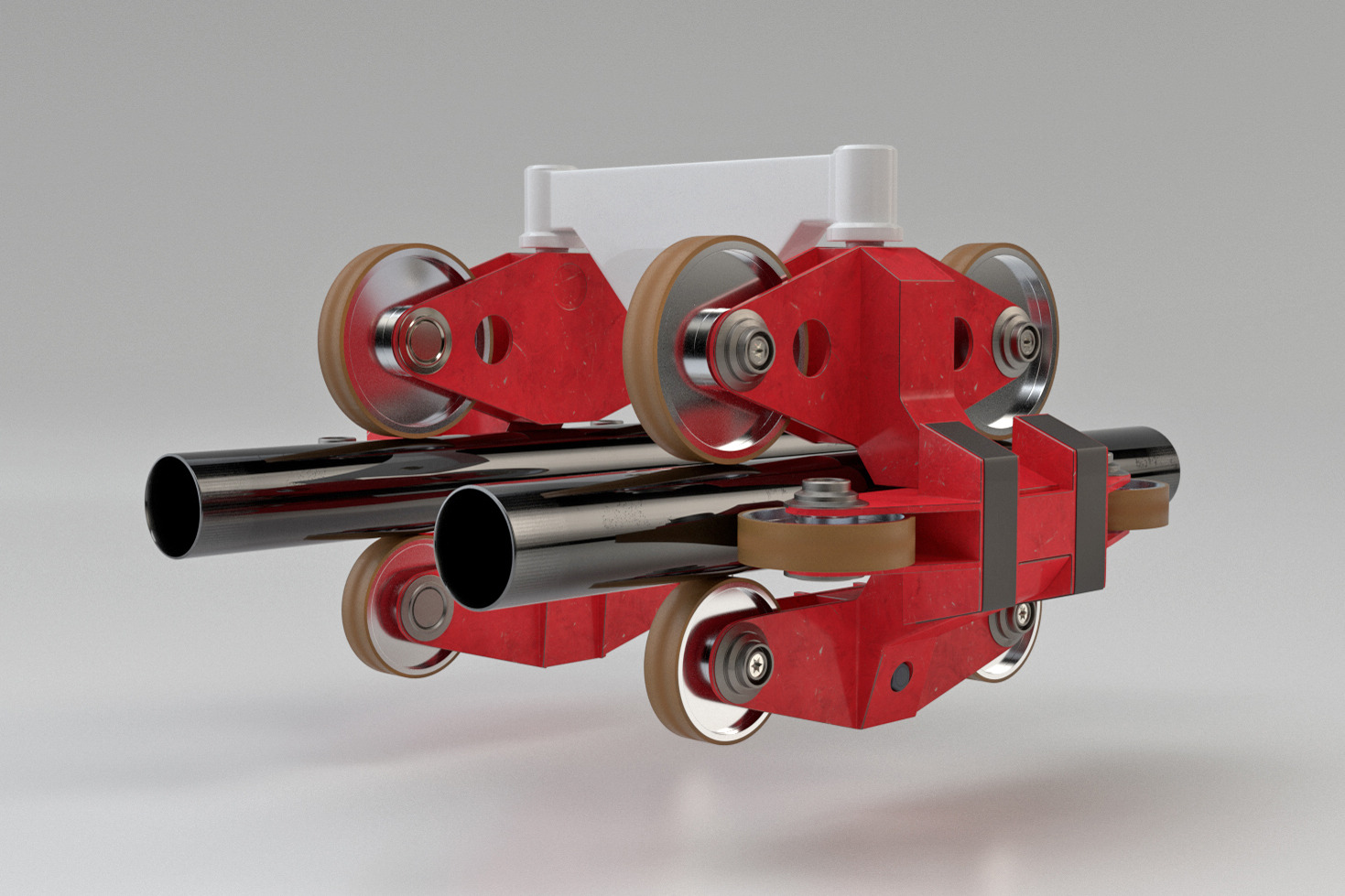pPDI-based material system with outstanding dynamic behavior and high fatigue resistance
The demand for extremely load-bearing elastomers for wheel treads and rollers is growing worldwide. The materials are used, for example, in the wheels of forklift vehicles, in guide rollers of high-rise and industrial elevators, and in rollers for agricultural machinery and high performance roller coasters. LANXESS has answered this trend by developing customized thermoset elastomer prepolymer systems and related hardeners. In addition, the specialty chemicals company supports customers with extensive services to optimize components made from these materials. For example, the prepolymer Adiprene PP1095H was developed for mechanically highly stressed, fast-running high-performance wheels and rollers. “It results in elastomers that have an extremely high level of dynamic properties compared to standard industrial materials for these applications and are also extremely fatigue-resistant,” explains Ian Laskowitz, Application Development Manager at Urethane Systems business unit. “Thanks to a proprietary mathematical model, we are also able to make optimum use of the material advantages of the elastomers with regard to the customer’s design specifications and accurately predict the performance of wheel treads and rollers”.
Hardly any heat build-up with periodic deformation
Adiprene PP1095H is a polyester-based prepolymer terminated with p-phenylene diisocyanate (pPDI). With the hardener Vibracure A250 it produces elastomers with a hardness of 95 Shore A. These maintain their outstanding dynamic properties over a wide temperature range. This is because the dissipation factor tan δ, which describes the conversion of energy into heat under a pulsating load, is lower than for comparable industrial standard materials. “Our elastomers generate less heat when subjected to frequent, rapid deformation. Therefore, they do not overheat in continuous use thereby allowing increased capacity compared to other materials,” says Laskowitz. This favorable hysteresis behavior also reduces rolling resistance, which in turn leads to energy savings when, for example, operating forklift vehicles. Thanks to these characteristics, higher running speeds and higher load capacity can be achieved with these wheels and rollers. Respective vehicles, transport systems or elevators can therefore be operated faster and more efficiently.
Design with high prediction accuracy
LANXESS’s proprietary mathematical model for predicting the performance of wheel treads and rollers takes into account the elastomer properties, the geometry of the wheels and rollers and the operational conditions. First, material parameters such as the material dampening properties (tan δ) are determined for the selected elastomer system in a dynamic-mechanical analysis. The customer’s specifications are then taken into account – such as the wheel geometry, duty cycle and operating temperature. The tool then calculates the loads and running speeds at which the material fails due to hysteresis, as well as predicting its other stress related failures such as fatigue and bond failures. “Our tool offers a very high prediction accuracy across many different industries. We have been able to successfully help numerous customers to optimize their wheel treads and rollers to meet the required demands of the application,” summarizes Laskowitz. “This applies not only to Adiprene PP1095H, but also to all of our cast urethane products which LANXESS has developed for this application segment. These include many ester, ether and polycaprolactone-based prepolymer systems produced with a variety of isocyanates”.


